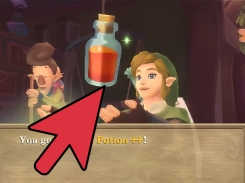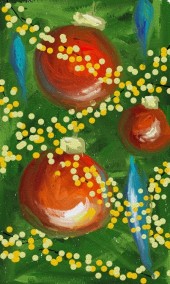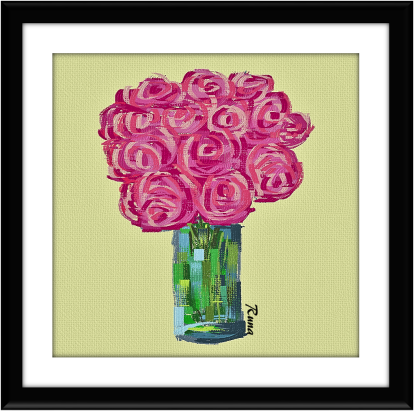Many, many thanks to Lavender and Levity for tagging me on the Christmas tag this year. My apologies for not being able to get to it on time, but hey, better late than never, right?
What is your favorite Christmas movie?
- There’s too many, but I am particularly fond of the humor in A Christmas Story, and the sentiment behind A Wonderful Life. Charlie Brown Christmas gets a special mention because I often feel like CB on days when you’re expected to be merry.

Do you like to stay in Pajamas or Dress Up for Christmas day?
- I’m practically always in pajamas unless I have to go out. Then I wear something suitable for wherever I am going. Christmas day is no different.
If you could only buy one person a present this year who would it be and why?
- I would buy our family the gift of health. The witches better get brewing!
This is perhaps also a good time to explain why my blog has been so neglected past few weeks. My husband ruptured a tendon in his knee a couple of weeks ago, and is now looking forward to at least another month of immobilization in bed. Since he is unable to do anything that requires any mobility (which is just about everything when you come to think of it), I have been taking care of him, our home, as well as the new job. This is quite a role reversal for us – our personal “upside down.” Needless to say, this has not left me feeling the best, but more on this episode later. The point of the story here was to illustrate how we could both use a bit of Link’s magic health potion right about now!

Do you open your present Christmas Eve or Christmas Morning?
- Christmas morning.
Have you ever built a ginger bread house?
- No, but I’ve built a Halloween cookie house! From a kit. Still counts?
What are you most looking forward to this Christmas season?
- Hmm, I was looking forward to a holiday with friends in New Jersey, but we had to cancel that following my husband’s accident. Now I am most looking forward to him getting better!
Any Christmas wishes?
- I wish people could take a quiet moment and look inward this Christmas. Self-reflection and finding peace within oneself is so important. I am with the Dalai Lama in that there can be no lasting peace on Earth until people find peace within themselves.
Favorite Christmas smell?
- Cinnamon and chocolate, or dark chocolate and peppermint. (That they are also popular coffee flavors has never escaped me.)

Favorite Christmas meal or treat?
- Ferrero Rocher
How do you traditionally spend your Christmas day?
- Very little is done “traditionally” over Christmas in recent years because I am never in the same place. I often visit my parents in India during the winter. If I’m there, we repeat a childhood tradition of visiting the nuns at my old grade school (it’s a Catholic school attached to a convent), and bring them presents. There’s a Christmas party we attend at a country club, and receive Christian friends who share delicious fruit cakes with us. If I’m with my husband, we are sometimes traveling on Christmas day, or visiting his parents, sharing some food and exchanging presents. Oh, and simply relaxing watching Christmas movies! Rudolph, Frosty, Christmas Story, Scrooge(s), Polar Express…
Do you open stockings first or presents?
- As a child, I used to open stockings first because they were closest to the bed. Now I don’t put any stockings up so there’s no competition.
When do you put up your tree?
- As soon after Thanksgiving as possible!

Least favorite part of Christmas?
- Probably how much a day like that comes loaded with behavioral expectations. That scares me because I’m not sure if my mask is bleeding and my anxiety is showing through.
Any unusual traditions during your Christmas?
- My husband and I enjoy driving around some of the neighborhoods that do pretty lights and decorations over Christmas and looking at peoples’ houses and yards. We do this for Halloween too, and most often they are the same neighborhoods.
Favorite childhood Christmas memory?
- When I was seven or eight, we were traveling one Christmas Eve by bus, and I was understanding of the fact that there was no way I could get presents that night. Nonetheless, my mother made me hang a stocking which I thought would be pointless. I didn’t really ever believe in Santa, and I knew my parents didn’t have time to buy gifts. But lo and behold! On Christmas morning, I found some ornaments in that stocking!! I was flabbergasted!! I couldn’t get it out of mom how she did it! She kept insisting it was Santa! I figured it out eventually, but for a while that day, I remember wondering if perhaps there truly was Santa!
Would you like to participate?
I am afraid it is a little too late to tag anyone, since this is supposed to be something done by Christmas 2017. But if you see this post, and you think it’s fun, please consider yourself tagged! All you have to do is answer the same questions as I did above. Please leave a link back to my post, so I know about it because I would love to read your responses. And tag your post with #ChristmasCheer on Twitter so we can find each other!
From the questions above, nothing seems Christmas-specific. It could be used for any holiday. So if you like, pick your favorite holiday or the one that means the most to you, and answer the same questions about that day!

I sincerely wish that the end of the year brings all my friends much happiness and loads of spoons!
Love,
Fibronacci










